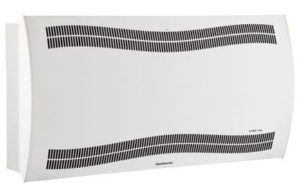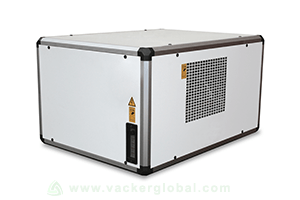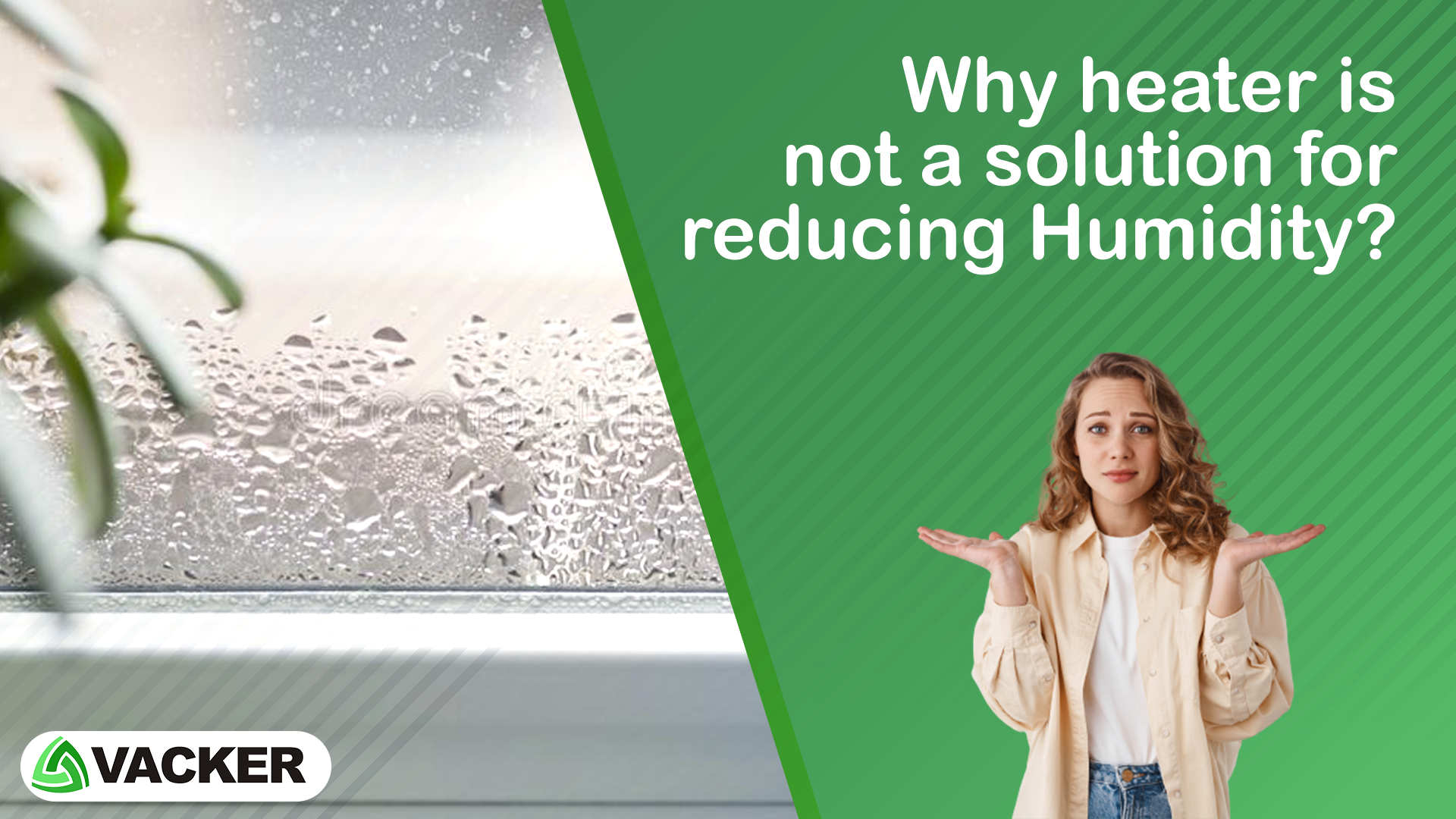Why heater is not a solution for reducing Humidity?
We are answering a few questions related to controlling humidity at the home, office, warehouses, buildings etc.
-
Why heater is not a better solution than a dehumidifier to reduce humidity?
There is a misconception that heating a room will reduce the humidity. This is absolutely not true.
 There are different reasons. If the room is a closed room, the humidity is trapped inside the room. It cannot go out of the room unless you extract the moisture from the air. Extraction of air is only possible by using a dehumidifier. The heater does not change the dew point to reduce the humidity. Hence overall humidity does not reduce. Thus the only efficient way to reduce humidity is to use a dehumidifier.
There are different reasons. If the room is a closed room, the humidity is trapped inside the room. It cannot go out of the room unless you extract the moisture from the air. Extraction of air is only possible by using a dehumidifier. The heater does not change the dew point to reduce the humidity. Hence overall humidity does not reduce. Thus the only efficient way to reduce humidity is to use a dehumidifier. -
How to use a dehumidifier for drying clothes?
Drying clothes without a dryer is a problem for households, especially in winter. If you are drying the clothes inside a room, you can simply keep a dehumidifier inside the room. The setting of the dehumidifier should be around 50 to 60%. You can keep it even lower. But it is safer to keep above 50% especially if there are other materials in the room. Else low humidity will damage other materials in the room. After a couple of hours, you can see that the clothes are dry. Then you can see the extracted water in the container of the dehumidifier. When you first switch on the dehumidifier, the air starts becoming dry. Then the water from the wet clothes evaporates into this dry air at a fast rate. The dehumidifier continues to extract water from the air, thus making the clothes dry very fast.
-
How to use a dehumidifier for drying wet coats in winter?
Suppose you are coming from rain and if the coat is wet. The best way to is to keep near a dehumidifier. Else the water slowly evaporates into the air making the room damp. The principle is the same as those explained in the previous question. As the air around the coat becomes dry, the water evaporates at a fast rate.
-
Why do premium laundries use dehumidifiers to dry clothes instead of tumble dryers?

You might have seen certain premium laundry companies advertising that they do not use dryers to dry the clothes. The dryers obviously cause stress on the clothes. Hence they definitely affect the life of the clothes. Natural drying is the best way of drying clothes for their life. However, drying them indoors is a challenge. In such cases, such laundries use a dehumidifier to dry the clothes faster without using a dryer at all.
-
Will opening the windows reduce the humidity inside a room?
There is another myth that the humidity inside a room will come down by opening the windows. It depends on the outside humidity at this point in time. If the outside humidity is lower than that inside the room, obviously the humidity inside the room will come down. In case the opposite is the situation, the room humidity will go up. In this case, the humidity from outside will enter the house.
-
What is the difference between Absorbent and Adsorbant?
These two terms are very commonly used interchangeably. However, there is a technical difference. Nowadays, adsorbents are mostly used in dehumidifiers. An adsorbent is a material like Silica, whereas an absorbant is a material like Lithium Bromide.
VackerGlobal is a leading supplier of all types of residential, commercial and industrial dehumidifiers across the entire Middle East and African countries.
In the Middle East, we supply industrial dehumidifiers, wall mounted dehumidifiers, swimming pool dehumidifiers, cold room dehumidifiers, residential dehumidifiers etc. in the United Arab Emirates, Kingdom of Saudi Arabia, Oman, Qatar, Bahrain, Iraq, Lebanon, Syria, Egypt, Jordan, Libya, Tunisia etc.
In Africa, we supply industrial dehumidifiers, wall mounted dehumidifiers, swimming pool dehumidifiers, cold room dehumidifiers, residential dehumidifiers etc. in countries including Kenya, Algeria, Tanzania, Djibouti, Chad, Ghana, Rwanda, Uganda, Nigeria, Ethiopia, Morocco, Angola, South Africa etc.

Leave a Reply